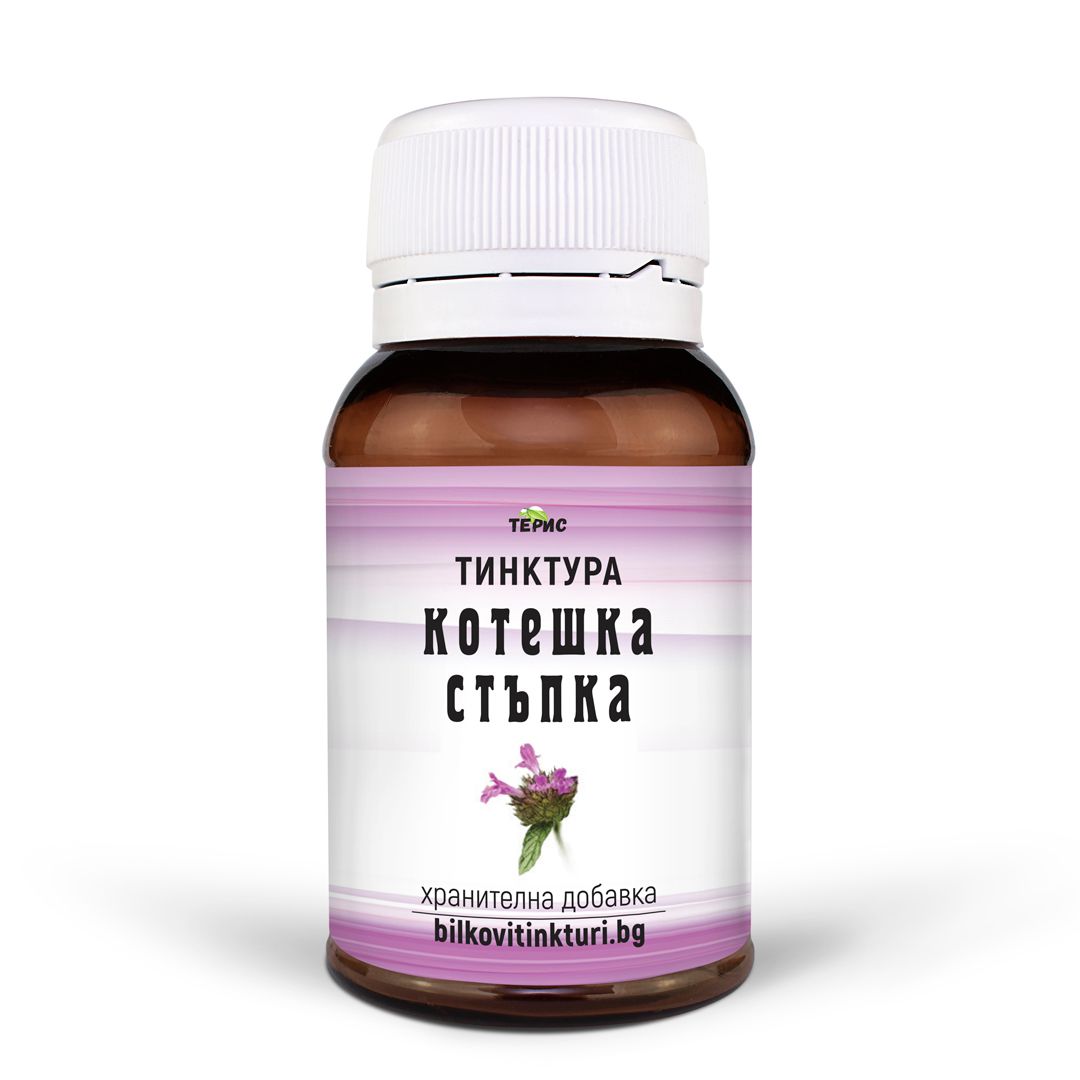Cat's Foot

Delivery
Guaranteed delivery within 48 hours

Certificate
Quality and safety

Service
Professional support

No GMO
Natural ingredients
Beneficial for prostate inflammation, gynecological and skin problems, supports the body's restorative powers
"CAT'S FOOT Herbal Tincture" contains one of the oldest known medicinal plants. The herb can be found throughout the country, but mainly in the foothills of the Sredna Gora, Stara Planina, and Rhodope mountains. It is also called "Levski's herb" because when he was a priest, he used it to treat people for various ailments. Cat's Foot is known for its healing applications:
- for prostate inflammation
- for gynecological problems
- for skin problems
- for supporting the body's restorative powers
The herb has a very good calming effect, and it also stimulates the body's resistance and regenerative processes. The compounds in Cat's Foot have a very good effect on the circulatory system. The plant can be used for female conditions such as uterine fibroids, breast mastopathy, and other gynecological diseases. Cat's Foot is beneficial for kidney stones, gastritis, warts, and high blood pressure because it cleanses arterial plaques, and it's also helpful for diabetes and skin conditions.
Herbal tincture CATFOOT 50ml should be taken orally, 20 drops (5 ml) dissolved in a glass of water - 3 times a day.
It is recommended to take 10-15 minutes before meals.
The product is a dietary supplement, not a medicine, and does not replace a complete /balanced/ diet.
The product should not be used as a substitute for a varied diet.
Do not exceed the recommended daily dose.
Not to be used by pregnant and breastfeeding women.
The product is not intended for persons under 18 years of age.
Contraindications: should not be taken during pregnancy and by people in pre-heart attack condition and those with diseases related to heart and cardiovascular activity.
Storage conditions: Store in a dry place protected from direct sunlight at a temperature of 5-25° C. Keep out of reach of young children.
The herbal tinctures are produced with a specially selected combination of herbs with entirely natural composition - they contain no chemical additives such as stabilizers, flavorings, or colorings.
Water-ethanol extract; 1 ml of tincture contains equivalent of:
- 127 mg valerian herb
- 0.5 ml ethanol 45% vol.
- 0.5 ml deionized water.
Dr. Krum Bardarov
Wild Basil (Clinopodium vulgare) is one of the herbs used by Vasil Levski, with which he healed hundreds of Bulgarians during the time he was a priest. The herb is used to treat tumors, myoma, kidney stones, high blood pressure, gynecological problems and many others
FAQ
Valerian Root Herbal Tincture is not recommended to be taken with alcohol, due to direct counteraction of some beneficial effects. There are also some indirect mechanisms, such as the reduction of beneficial zinc under the influence of alcohol detoxification processes in the liver.
Myoma is a benign smooth muscle tumor that originates from the myometrium (the muscular tissue of the uterus). Myoma affects 25% of women over 30 years of age. The tumor is rarely found in women under 18 years of age and regresses during menopause. Myoma is the most common uterine tumor and one of the most common tumors of the female reproductive system. All myoma nodes start as small nodules that originate from the muscle tissue of the uterus and later transform into nodes that can vary in size and location.
The exact causes of fibroids have not yet been established by scientists. It appears that the development of fibroids is related to the female hormone estrogen. Fibroids appear during reproductive years when estrogen levels are high. Fibroids do not develop before the body begins producing estrogen. Fibroids tend to grow very rapidly during pregnancy when the body produces additional estrogen. After entering menopause, fibroids usually stop growing and begin to decrease in size as a result of estrogen loss.
Asthma is a chronic inflammatory disease of the respiratory tract. The condition manifests with recurring episodes of wheezing, shortness of breath, chest tightness and/or pressure, coughing especially at night or early in the morning. A key element is bronchial obstruction (narrowing of the bronchi).
